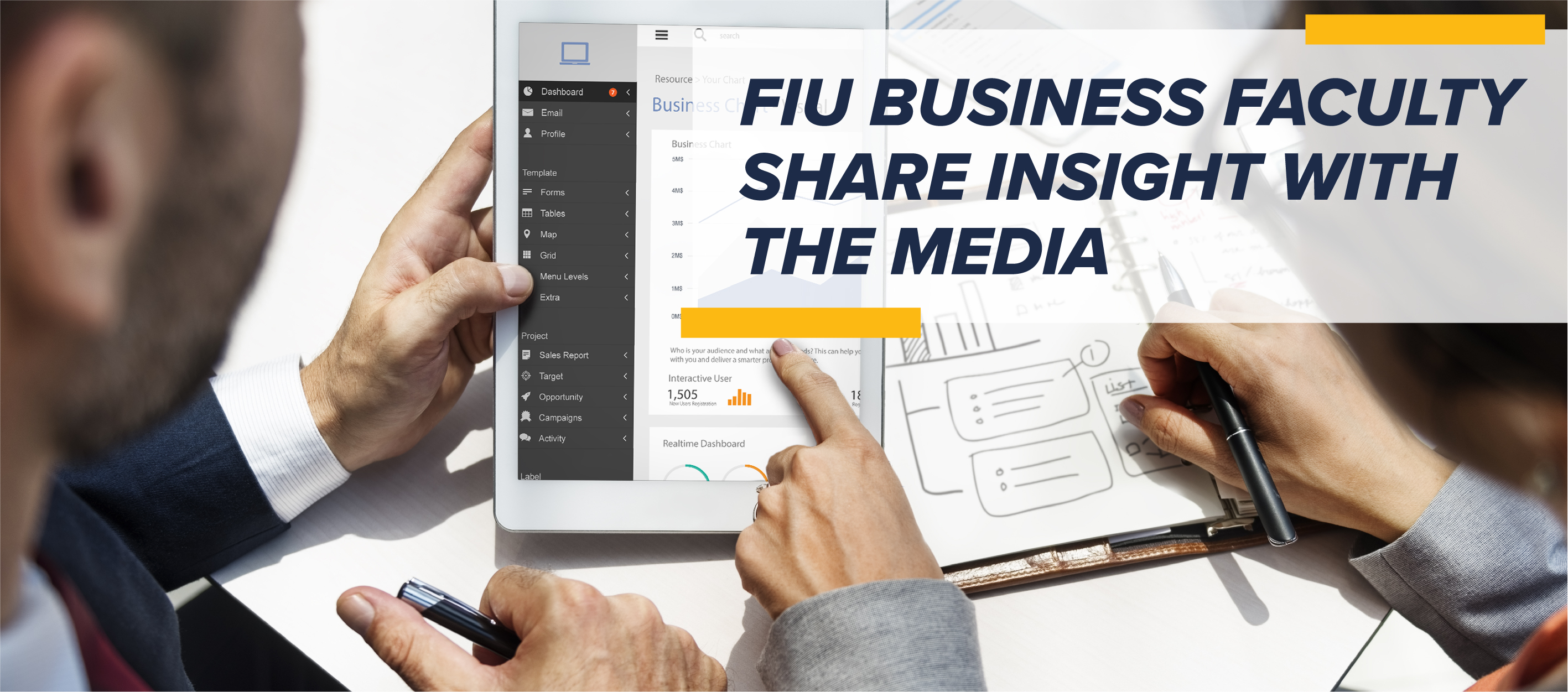
NBC6 — February 4, 2021
In a televised report about South Floridians' financial struggles
during the pandemic, many said another relief check would be
a major help. Deanne Butchey, teaching professor of finance,
explained that the funds have helped avoid a major recession or
even a depression. "There's a big chunk of people who really need
that money," she said. "They need to feed their kids."
Star Tribune (Minneapolis) — January 31, 2021
In a story about venture capital investments, Dileep Rao, clinical
professor of international business, discussed the businessfinance
strategies of the founders of Minnesota-based companies
including Best Buy, UnitedHealth and Medtronic. Ranging from
"friendly individual investors to various forms of debt finance,
partnerships and capital-conservation strategies," founders kept
control, he said.
"There's a big chunk of people who really need that money. They need to feed their kids."
Deanne Butchey, Teaching Professor, Finance
CBS4 — January 22, 2021
In a report about Miami Mayor Francis Suarez's plan to bring tech
companies to Miami, George Marakas, professor of information
systems and business analytics, explained that a possible boom
in high-tech business will mean high-paying jobs for South Florida.
"The agility that is necessary to bring something, a new technical
idea out of the ground and bring it to fruition, really takes some
entrepreneurial thinking," said Marakas.
CNN.com — January 18, 2021
In a story about the rise of the "fake commute," wherein people
replace that daily transition with various activities, Ravi Gajendran,
associate professor of global leadership and management,
pointed out that working from home during the pandemic makes
the transition between work and home difficult. "It's hard to leave
behind the stresses and mental worries of a work-related Zoom
call and instantly switch to being a loving and caring partner or
spouse," he said.
"It's hard to leave behind the stresses and mental worries of a work-related Zoom call and instantly switch to being a loving and caring partner or spouse."
Ravi Gajendran, Associate Professor, Global Leadership and Management
FoxNews.com — January 18, 2021
In a story about the possibility of a new pandemic spawning
from China, Attila Hertelendy, assistant teaching professor of
information systems and business analytics, explained that the
"threat still remains high." He noted that "there needs to be an
overall improvement in collaboration among global governments,
as well as to enhancing data-sharing agreements so that
information can be reported in real-time."
El Nuevo Herald — December 23, 2020
Manuel Lasaga, clinical professor of finance, was quoted
in a story about how the massive quarantine, as part of efforts
to control the spread of COVID-19, impacted the U.S. economy,
which practically ground to a halt. "We have suffered the
largest economic shock of the last 100 years," he said. "The Gross
Domestic Product of the U.S. collapsed in the fourth quarter."
"Hemos tenido el shock económico más grande de los últimos 100 años."
Manuel Lasaga, Clinical Professor, Finance
Miami Herald — December 21, 2020
In an op-ed about the COVID pandemic's impact on Latin America,
Jerry Haar, professor of international business, pointed out
that the region will lose one-fifth of its dollar-measured GDP in
2020. "Given Miami's ties to the region, one might expect our
economy to greatly suffer from Latin America's woes, but the real
impact is mixed — evidence of Miami's economic diversification
advantages," he wrote.
Miami Herald — November 18, 2020
In a story about construction financing in South Florida, Suzanne
Hollander, associate teaching professor of real estate, explained
that while the demand for industrial construction is rising, a pause
in lending is likely. "There is a demand for affordable housing;
there is going to be an increased demand as there is more
unemployment," she said.
"...one might expect our economy to greatly suffer from Latin America's woes, but the real impact is mixed."
Jerry Haar, Professor, International Business